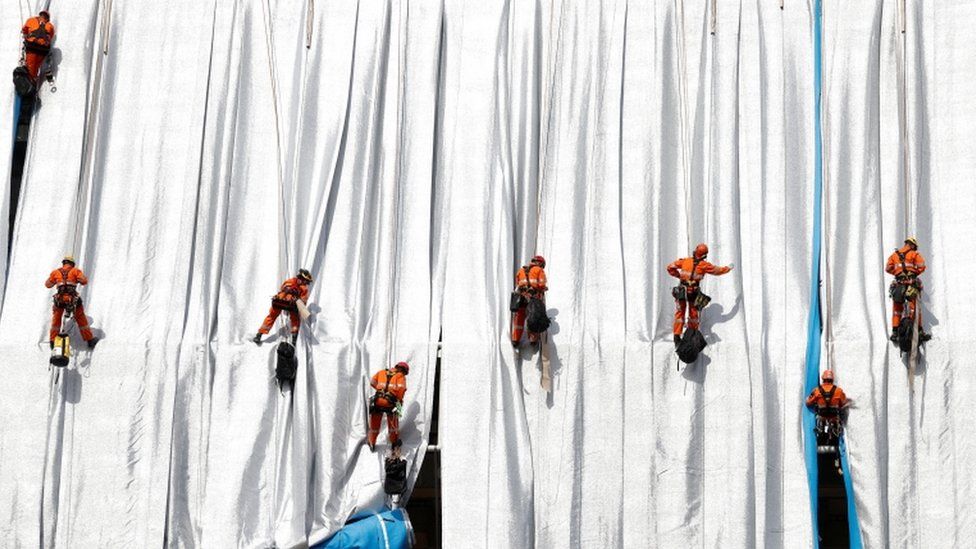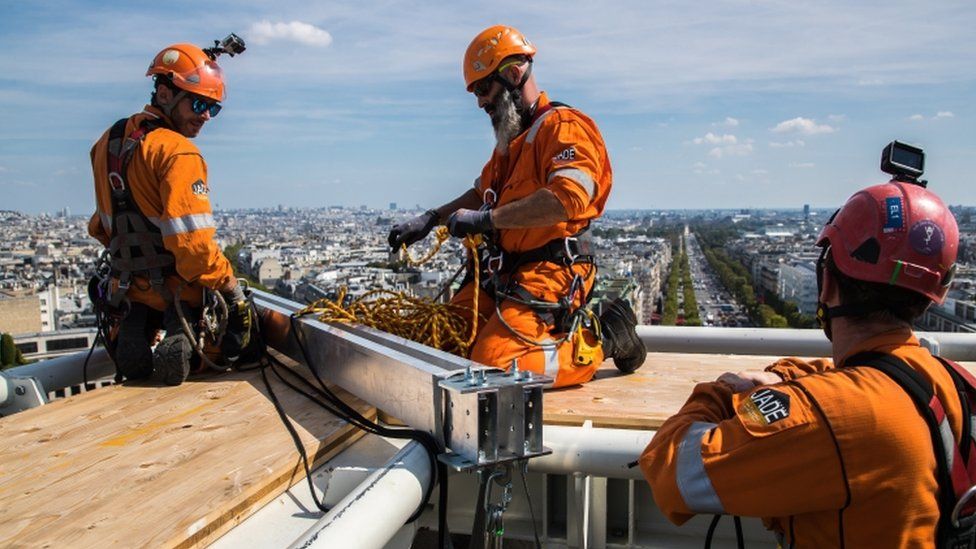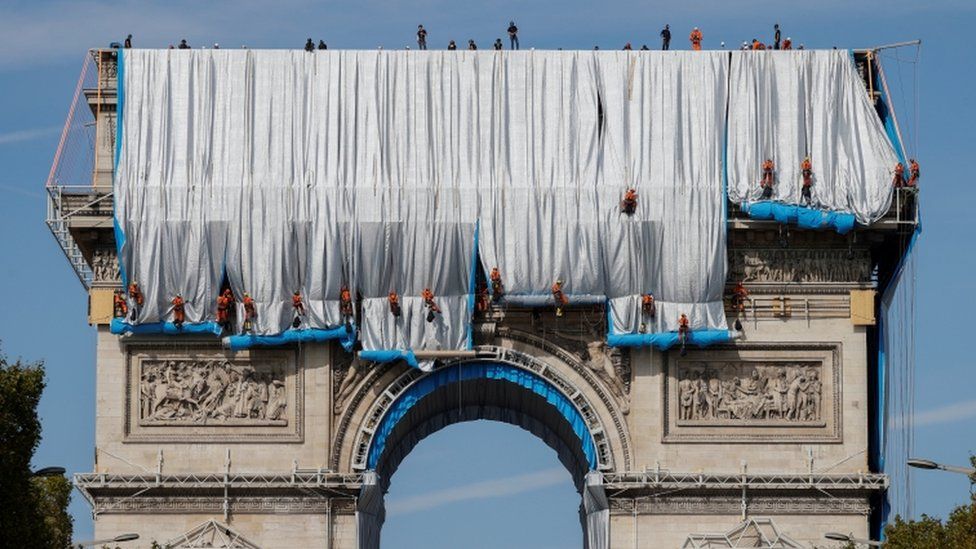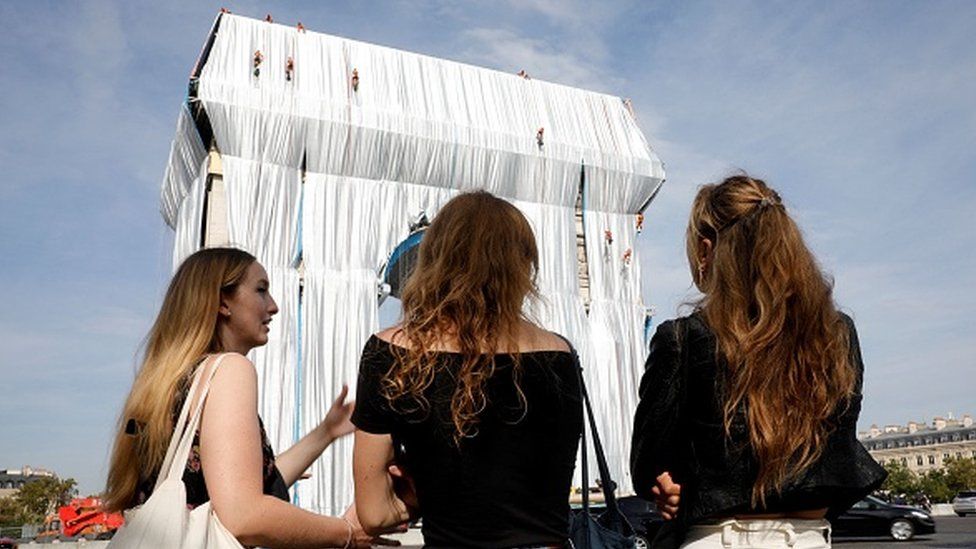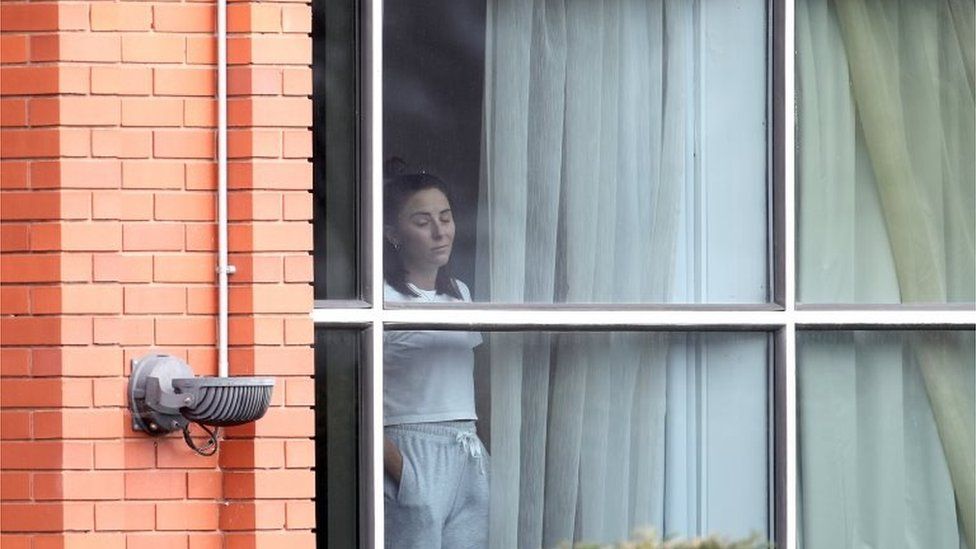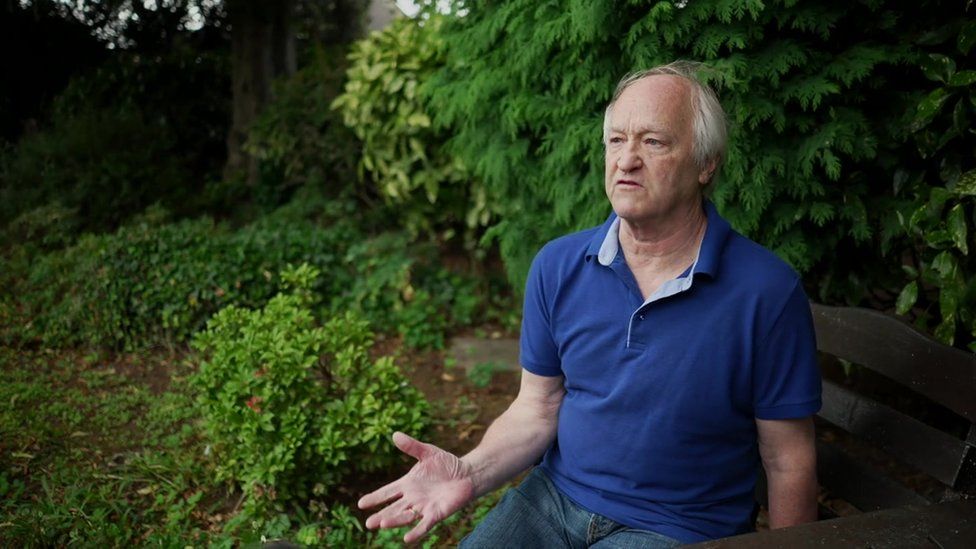TEHRAN, Iran (AP) — Iran agreed Sunday to allow international inspectors to install new memory cards into surveillance cameras at its sensitive nuclear sites and to continue filming there, potentially averting a diplomatic showdown this week.
The announcement by Mohammad Eslami of the Atomic Energy Organization of Iran after a meeting he held with the director-general of the International Atomic Energy Agency, Rafael Grossi, in Tehran still leaves the watchdog in the same position it has faced since February, however.
Tehran holds all recordings at its sites as negotiations over the U.S. and Iran returning to the 2015 nuclear deal remain stalled in Vienna. Meanwhile, Iran is now enriching small amounts of uranium to its closest-ever levels to weapons-grade purity as its stockpile continues to grow.
“We had a major, major communication breakdown with Iran, which, of course, is something we cannot afford, having so many important issues that we need to solve,” Grossi told reporters on his return from Tehran. “And I think that was solved.”
Eslami described the negotiations between Iran and the Vienna-based IAEA as “sheerly technical” without any room for politics. He said Grossi would return to Iran soon to talk with officials, without elaborating. Also left unsaid was whether Iran would hand over copies of the older recordings, which Tehran had threatened previously to destroy.
“The memory cards are sealed and kept in Iran, according to the routine,” Eslami said. ”New memory cards will be installed in cameras. That is a routine and natural trend in the agency’s monitoring system.”
A joint statement released by the IAEA and Iran confirmed the understanding, saying only that “the way and the timing are agreed by the two sides.”
Grossi said the agreement would ensure “continuity of knowledge” that would ensure the watchdog can piece together the data it needs in future.
“The reconstruction and the coming together of the jigsaw puzzle will come when there is an agreement at the JCPOA level,” he said, a reference to the talks on reviving the 2015 deal between Iran and world powers. “But at that time, we will have all this information and there will not have been a gap.”
The announcement could buy time for Iran ahead of an IAEA board meeting this week in which Western powers had been arguing for Tehran to be censured over its lack of cooperation with international inspectors. Eslami said Iran would take part in that meeting and its negotiations with the IAEA would continue there.
The IAEA told member states in its confidential quarterly report last week that its verification and monitoring activities have been “seriously undermined” since February by Iran’s refusal to let inspectors access their monitoring equipment.
The IAEA said certain monitoring and surveillance equipment cannot be left for more than three months without being serviced. It was provided with access this month to four surveillance cameras installed at one site, but one of the cameras had been destroyed and a second had been severely damaged.
Grossi said the broken and damaged cameras would be replaced, but indicated that the technical agreement reached in Tehran was only a stopgap.
“This cannot be a permanent solution,” he said. “If you ask me how many months, how many days, it’s difficult for me to say. But I don’t see this as a long term prospect.”
Mikhail Ulyanov, the Russian ambassador to the IAEA, praised the agreement on Twitter, calling it “technical but very important.”
“It is no less important for Iran to rebuff groundless speculations against it,” Ulyanov wrote.
Iran and world powers agreed in 2015 to the nuclear deal, which saw Tehran drastically limit its enrichment of uranium in exchange for the lifting of economic sanctions. In 2018, then-President Donald Trump unilaterally withdrew America from the accord, raising tensions across the wider Middle East and sparking a series of attacks and incidents.
President Joe Biden has said he’s willing to re-enter the accord, but so far, indirect talks have yet to see success. In the meantime, Iran elected Ebrahim Raisi, a hard-line protégé of Supreme Leader Ayatollah Ali Khamenei, as president. Raisi also has said he wants Iran to regain the benefits of the accord, though Tehran in general has struck a tougher pose since his victory.
In Israel, Israeli Prime Minister Nafatli Bennett urged world powers to not “fall into the trap of Iranian deception that will lead to additional concessions” over the impasse. Israel, widely believed to possess nuclear weapons, has long accused Iran of seeking an atomic bomb.
Tehran maintains its program is peaceful, though U.S. intelligence agencies and international inspectors believe the Islamic Republic pursued the bomb in an organized program up until 2003.
“You must not give up on inspecting sites and the most important thing, the most important message is that there must be a time limit,” Bennett said. “The Iranian nuclear program is at the most advanced point ever. … We must deal with this project.”
Israel is suspected of launching multiple attacks targeting Iran’s Natanz nuclear facility, as well as killing a scientist associated with Iran’s one-time military nuclear program last year.
From Riyadh, the top diplomats of Saudi Arabia and Austria jointly expressed concern over Iran’s nuclear advances, with Austrian Foreign Minister Alexander Schallenberg citing “Iran’s failure to allow access for nuclear inspections.”
……………………………………………………………
